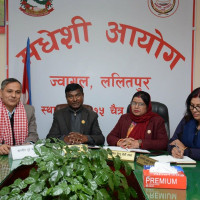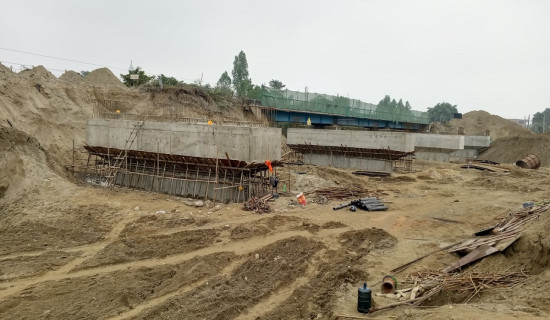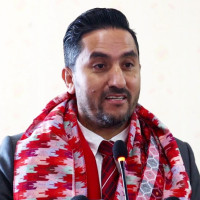- Thursday, 8 January 2026
Nepal’s out-bound labour migration surges
Kathmandu, June 24: As the international markets continue to revive after the coronavirus ravaged the global economy for two years, number of Nepalis going abroad in search of jobs has grown exponentially.
But despite two decades’ track record of exporting human resources, Nepal has largely failed to supply high-skilled and professional manpower to the Gulf countries and elsewhere. According to the statistics of the Department of Foreign Employment (DoFE), only eight high skilled and 48 professionals left the country for jobs abroad in a month from mid-May to mid-June this year while the department had issued about 62,349 labour permits during the same period.
However, the number of unskilled workers was 21,307 and skilled 35,801.
A month earlier, from mid-April to mid-May, high-skilled and professional Nepali workers’ number going for foreign employment was 10 and 54 respectively while there were 15,794 unskilled workers among a total of 45,004.
Last year, during mid-May to mid-June, only 4,086 Nepali workers had obtained approval for foreign jobs. Of them, only one was high-skilled and three were professional, and 1,565 were unskilled. Due to COVID-19 pandemic, many countries, including Gulf countries and South Korea, had suspended recruitment process of foreign workers in 2020 and 2021. Similarly, from mid-April to mid-May in 2021, six high-skilled and 36 professionals had left the country for various jobs. The total number of Nepali migrant workers obtaining approval was 24,363 and about 11,626 among them were unskilled.
The statistics of the DoFE showed that about half of the Nepali migrant workers who left the country in the last fiscal year 2020/21 were unskilled. That year, about 166,698 Nepali workers obtained approval for foreign jobs and 80,382 were unskilled while only 61 were high-skilled professionals.
High skilled and professional human resources include engineers, doctors, IT professionals, pilots and managers.
However, it is unfortunate on the part of the country that it has failed to increase the number of high-skilled and semi-skilled workers going for foreign employment even after three decades’ experience in the sector.
“Initially, all the countries were sending low-skilled workers abroad but in the subsequent years they changed the situation while Nepal lagged in the process,” said Director General of the DoFE, Shesh Narayan Poudel.
According to him, Nepal is not a preferred source country for high-skilled manpower as education and training system here are yet to upgrade to the global standards. This trend has contributed to the low income of Nepali workers in the foreign countries, they have low bargaining power and opportunity for skill enhancement and are forced to perform high-risk jobs, Poudel maintained.
It has affected the remittance inflow as well. Had the number of semi-skilled and high-skilled workers increased, the size of remittance would have increased significantly.
Experts have suggested reforming school education and establishing polytechnic institutes across the country to train the youth in various skills.












-original-thumb.jpg)



